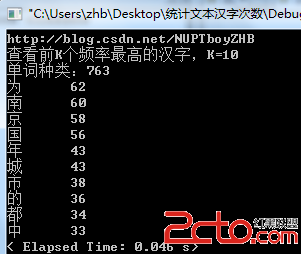RTP实时音视频数据传输,发送端和接收端
1.项目前期工作(配置好环境)
2.发送端文件编写(见下面的send.cpp)
3.接收端文件编写(见下面的receive.cpp)
4.编译文件
(1)发送端
g++ -o send send.cpp -I /usr/local/include/jrtplib3/ -ljrtp
(2)接收端
g++ -o receive receive.cpp -I /usr/local/include/jrtplib3/ -ljrtp
附录:
(1)send.cpp
[cpp]
#include "rtpsession.h"
#include "rtppacket.h"
#include "rtpudpv4transmitter.h"
#include "rtpipv4address.h"
#include "rtpsessionparams.h"
#include "rtperrors.h"
#include "rtpmemorymanager.h"
#ifndef WIN32
#include <netinet/in.h>
#include <arpa/inet.h>
#else
#include <winsock2.h>
#endif // WIN32
#include <stdlib.h>
#include <stdio.h>
#include <iostream>
#include <string>
//
// This function checks if there was a RTP error. If so, it displays an error
// message and exists.
//
void checkerror(int rtperr)
{
if (rtperr < 0)
{
std::cout << "ERROR: " << RTPGetErrorString(rtperr) << std::endl;
exit(-1);
}
}
//
// The main routine
//
#ifdef RTP_SUPPORT_THREAD
class MyMemoryManager : public RTPMemoryManager
{
public:
MyMemoryManager()
{
mutex.Init();
alloccount = 0;
freecount = 0;
}
~MyMemoryManager()
{
std::cout << "alloc: " << alloccount << " free: " << freecount << std::endl;
}
void *AllocateBuffer(size_t numbytes, int memtype)
{
mutex.Lock();
void *buf = malloc(numbytes);
std::cout << "Allocated " << numbytes << " bytes at location " << buf << " (memtype = " << memtype << ")" << std::endl;
alloccount++;
mutex.Unlock();
return buf;
}
void FreeBuffer(void *p)
{
mutex.Lock();
std::cout << "Freeing block " << p << std::endl;
freecount++;
free(p);
mutex.Unlock();
}
private:
int alloccount,freecount;
JMutex mutex;
};
#else
class MyMemoryManager : public RTPMemoryManager
{
public:
MyMemoryManager()
{
alloccount = 0;
freecount = 0;
}
~MyMemoryManager()
{
std::cout << "alloc: " << alloccount << " free: " << freecount << std::endl;
}
void *AllocateBuffer(size_t numbytes, int memtype)
{
void *buf = malloc(numbytes);
std::cout << "Allocated " << numbytes << " bytes at location " << buf << " (memtype = " << memtype << ")" << std::endl;
alloccount++;
return buf;
}
void FreeBuffer(void *p)
{
std::cout << "Freeing block " << p << std::endl;
freecount++;
free(p);
}
private:
int alloccount,freecount;
};
#endif // RTP_SUPPORT_THREAD
int main(void)
{
#ifdef WIN32
WSADATA dat;
WSAStartup(MAKEWORD(2,2),&dat);
#endif // WIN32
MyMemoryManager mgr;
RTPSession sess(&mgr);
uint16_t portbase,destport;
uint32_t destip;
std::string ipstr;
int status,i,num;
// First, we'll ask for the necessary information
std::cout << "Enter local portbase:" << std::endl;
std::cin >> portbase;
std::cout << std::endl;
std::cout << "Enter the destination IP address" << std::endl;
std::cin >> ipstr;
destip = inet_addr(ipstr.c_str());
if (destip == INADDR_NONE)
{
std::cerr << "Bad IP address specified" << std::endl;
return -1;
}
// The inet_addr function returns a value in network byte order, but
// we need the IP address in host byte order, so we use a cal
补充:软件开发 , C++ ,




